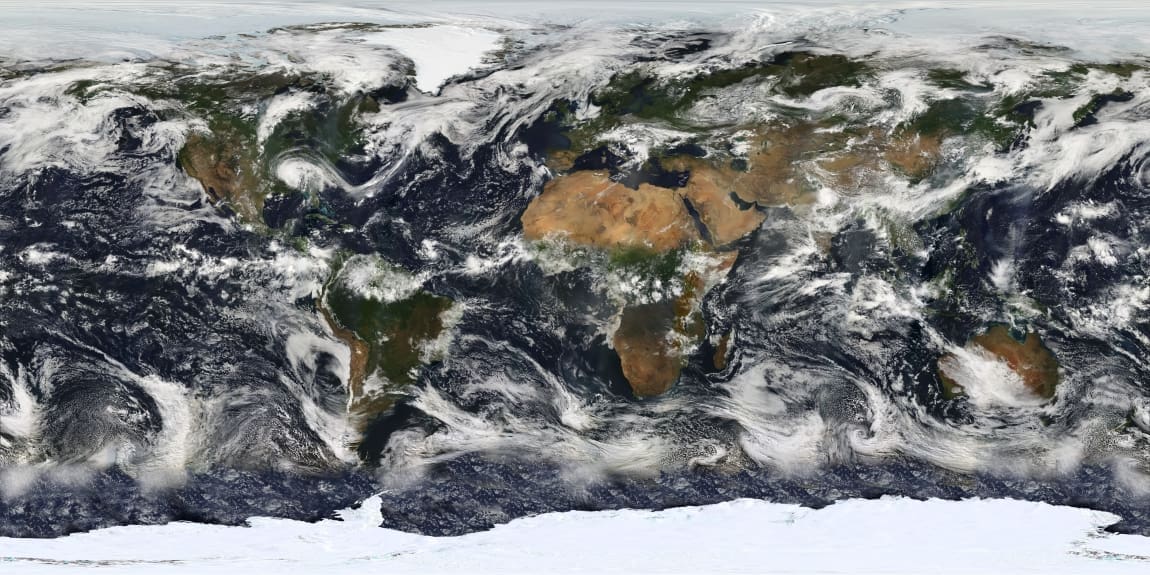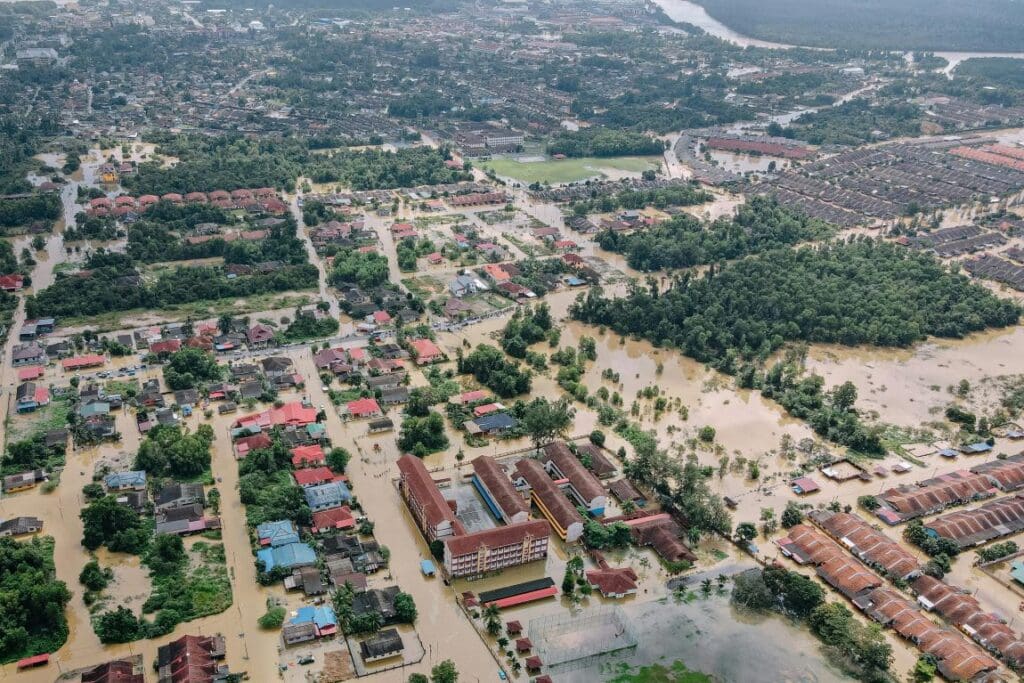National forecasting centres like the Met Office could apply the same tools used for weather forecasting to quantify how human behaviour is aggravating major events like floods, heatwaves and storms, climate scientists at Oxford University Physics show in a study published today in Nature Communications.
Oxford climate physicists, led by Professor Myles Allen, have, for the first time, demonstrated how state-of-the-art weather forecasts can be used to show how greenhouse gas emissions affect extreme weather. In new studies of recent events in both the UK and U.S., they assessed the impact of global warming at a local scale and found that human activity both worsened specific weather events and made them more likely to occur.
Their findings coincide with the United Nations ‘AI for Good Summit‘ in Geneva, where scientists from the Oxford Physics team will lead sessions on how artificial intelligence and machine learning can improve regional forecasting of extreme weather and future climate predictions.
‘Weather forecasters could – and should – both warn people of extreme weather and explain how it is being affected by climate change,’ said Professor Myles Allen, who leads the Oxford University Physics research team. ‘It isn’t a simple case of climate change making all weather worse: some events, like prolonged winter cold, have become less likely.’
The new Oxford studies used the world’s most reliable medium range weather forecasting model, from the European Centre for Medium-Range Weather Forecasting, to assess the impact of climate change on extreme weather. A previous study, published in Environmental Research: Climate, focused on Storm Eunice in the UK, which reached wind speeds of 122 miles per hour and caused 17 deaths in February 2022.
‘We found that climate change expanded how much of the UK was impacted by storm Eunice and intensified the storm’s severity by as much as 26%,’ said Shirin Ermis (Oxford University Physics), who led the UK study by Oxford University Physics. The study published today applied the same approach to the U.S. Pacific Northwest heatwave, thought to have killed over 800 people in June 2021.
‘Climate change and human influence is having a very clear impact on certain extreme weather like storms and heatwaves,’ said Dr Nicholas Leach (Oxford University Physics) who led the U.S. study. ‘Human influence made this 2021 heatwave at least 8 times more likely, and we also found the risk of similar heatwaves occurring is doubling every 20 years at the current rate of global warming.’
Understanding how climate change and human activity impacts extreme weather events remains a significant and urgent challenge because every year such events cost many lives and billions of dollars in aid and disaster relief around the world.
In the UK, the cost of dealing with natural disasters caused by extreme weather and climate change could bankrupt the country by the end of the century, according to a recent report from the environmental intelligence agency Kisters. And in the U.S., the cost of dealing with 28 separate weather and climate disasters in 2023 alone topped a record US$90 billion.
To investigate the impact of climate change on extreme weather, and assess the influence of human activity, scientists rely on computer modelling. However, climate models are often inaccurate at a regional or local level and only represent specific atmospheric processes at a coarse scale, making their predictions unreliable, especially for extreme weather like storms.
The Oxford teams overcame this by using high-resolution weather forecasting models to simulate extreme weather as if it had occurred in a world without human influence on climate, and in a warmer world of the future. Their models could simulate and predict even unprecedented weather events and can also be used to understand and quantify how human behaviour is changing them.
At the ‘AI for Good’ summit in Geneva today, Professor Philip Stier of Oxford University Physics will convene a workshop with leading international experts to discuss future climate prediction systems. These are expected to make extensive use of artificial intelligence, to deliver more accurate predictions of the impact of climate change at local level.
More information: Leach, N.J., Roberts, C.D., Aengenheyster, M. et al., ‘Heatwave attribution based on reliable operational weather forecasts’, Nature Communications (2024, 15, 4530). DOI: 10.1038/s41467-024-48280-7. University of Oxford – Press Release; Featured image credit: Pickpik




